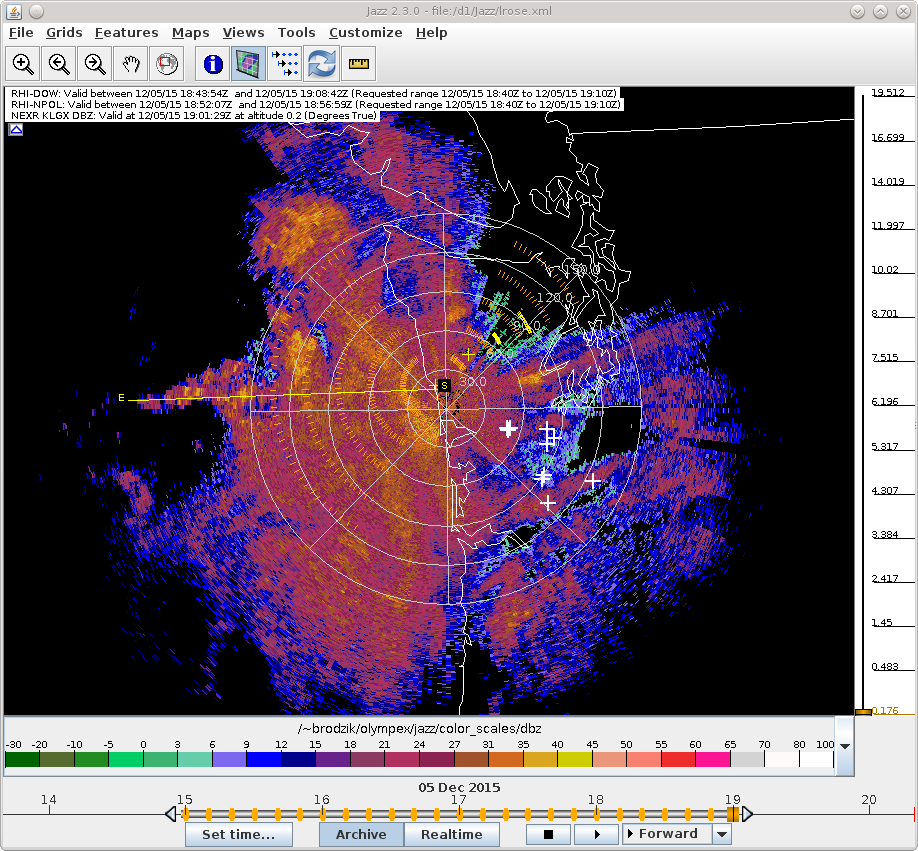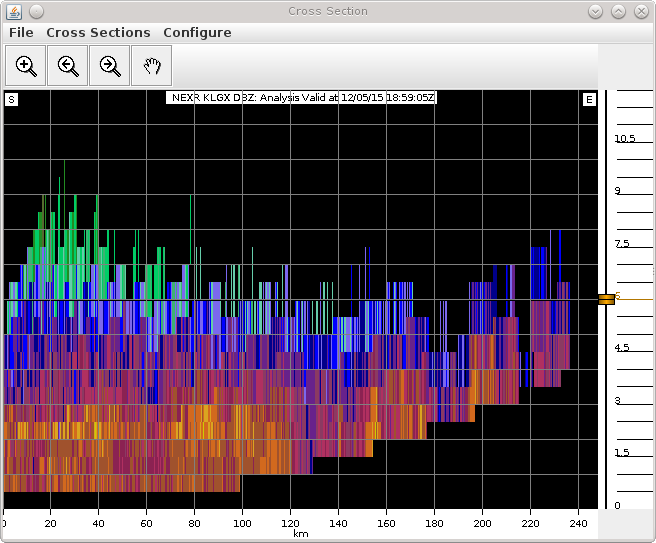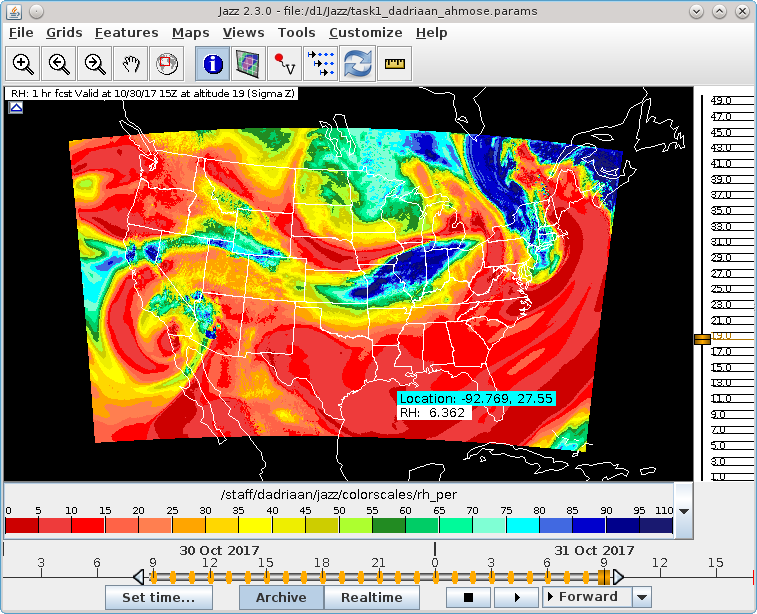Jazz






Jazz is a Java-based data display designed for scientific use. The display can be used to explore datasets in various data formats (MDV, SYMPROD, NetCDF, etc) as well as Open Geospatial protocols (WMS, WFS, and WCS). It supports thematic basemaps from Shapefile, WMS, and CIDD Map, as well as multiple feature overlays from SPDB, WFS, and ADDS Dataserver. It slices data in five dimensions: horizontal slices at selectable altitudes over time for selectable model runs and lead times. It is highly customizable through a simple XML configuration file that can be shared with colleagues. It also contains a suite of optional tools for more advanced data analysis and depiction.
The Jazz display is built on top of the RAL-developped JADE toolkit. That toolkit has been used for the ADDS Flight Path Tool and HEMS Tool, ATEC JViz, MDSS display, and several other research displays. The toolkit is still under active development. We welcome your feedback about any of its applications.
Jazz is free to use under the terms of this BSD license.
To view all of the documentation for Jazz XML configuration files, select "Config Help..." from the "Help" menu or run Jazz from the command with a "-help" argument, like this:
java -jar jazz.jar . -help
The help text will be displayed in the jazz.log file, located in the unzipped directory where you are running Jazz.
To automatically configure Jazz from an existing MDV and/or SPDB server, run Dan Adriaansen's very useful jazzparamgen tool. It generates a Jazz config file for you, containing every field on the server(s). You can download it from https://github.com/NCAR/jazzparamgen.
If you are currently a CIDD user, you can use the CiddParams2JazzXml application to convert your CIDD parameter files to Jazz configuration files. This application is included in the RAL nightly builds so can be found in /rap/dev/bin and /rap/bin on RAL internal hosts. If you are an external user, you will have to get a copy of the application from your RAL contact. Note that Jazz does not currently support all of the options available in the CIDD parameter file so only those options that are supported are included in the Jazz XML file. Some CIDD parameters cannot be converted exactly into the Jazz XML.
Parameters that might need some tweaking when converting CIDD parameter files into Jazz XML configuration files:
For questions and updates, please join the Jazz Google Group at: https://groups.google.com/a/ucar.edu/g/ral-jazz. RAL internal users can also file bugs directly in JIRA at: https://sdg.rap.ucar.edu/jira/projects/JAZZ. External users should obtain support through their NCAR project contact.